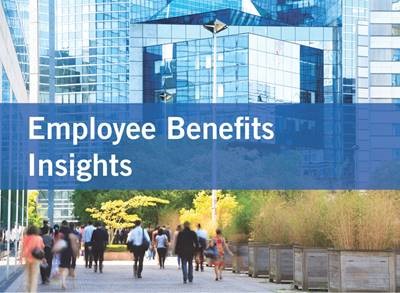
The American Rescue Plan Act of 2021 (the “ARPA”), which President Biden is expected to sign into law on Friday, March 12, contains several new rules impacting COBRA benefits. The ARPA provides up to six months of free COBRA coverage for “Assistance Eligible Individuals,” a special COBRA enrollment and coverage period for such individuals, and new notice obligations, all as described below. For those who have been in the employee benefits world for a while, these new COBRA subsidies will operate similarly to the ARRA subsidies of 2009 and 2010. The following is a summary of the key information that plan sponsors need to know about these new ARPA COBRA rules.
Which Plans are Subject to These Rules?
These ARPA rules apply to all group health plans that provide major medical benefits that are subject to federal or state COBRA obligations. It applies to self-funded and fully-insured plans, multi-employer (union-sponsored) plans, and governmental employer plans. While it is not entirely clear based on the text of the ARPA whether it is intended to provide subsidies for dental plan and vision plan coverage, we think the subsidy is likely available for both dental and vision coverage. We suspect that it is not but will need clarification from the government before we can say that definitively. It is clear that health care flexible spending accounts are not subject to the ARPA provisions.
How Much is the Subsidy and How Long Does it Last?
The ARPA COBRA subsidy is equal to the entire cost of COBRA premiums for eligible coverage and is available for the months of April, 2021 through September, 2021 (the “Subsidy Period”) for any Assistance Eligible Individual (see below) who is enrolled in COBRA coverage during the Subsidy Period, including those who enroll during the Special Enrollment Period described below. In essence, then, the ARPA provides free COBRA coverage to Assistance Eligible Individuals for the Subsidy Period. The subsidy is non-taxable to the Assistance Eligible Individual.
The ARPA doesn’t extend the normal 18 month period of COBRA coverage that applies when coverage is lost due to job loss or reduction in hours. For example, if an Assistance Eligible Individual has already had COBRA coverage for 15 months on April 1, 2021, then that individual would only be eligible for 3 months of free COBRA coverage. It also means that if an Assistance Eligible Individual becomes eligible for coverage under another employer’s health plan during the Subsidy Period, then that individual’s right to COBRA coverage (and the ARPA COBRA subsidy) would end.
Who is an Assistance Eligible Individual?
An Assistance Eligible Individual is someone who:
- Lost medical coverage under a group health plan due to their or their family member’s involuntary termination of employment (e.g., job elimination, layoff, termination) for reasons other than gross misconduct or a reduction of hours which would result in COBRA coverage period being available from April 1, 2021 through September 30, 2021. For example, an individual who experienced an involuntary termination of employment November 1, 2019 would be an Assistance Eligible Individual because the tail-end of their 18 months of federal COBRA would occur during the month of April 2021; and
- Is already enrolled in COBRA coverage on April 1, 2021 or enrolls in COBRA coverage during the Special Enrollment Period, as described below.
What is the Special Enrollment Period?
The ARPA provides an Assistance Eligible Individual who is not enrolled in COBRA as of April 1, 2021 a second window of time to enroll in order to take advantage of the subsidy. This includes Assistance Eligible Individuals who never made a COBRA election in the first place or who made an election but later dropped COBRA. The Special Enrollment Period runs for 60 days after the individual receives the notice described below. Note that this Special Enrollment Period is only available for Assistance Eligible Individuals with a federal law COBRA right; namely, those with a COBRA right under a plan sponsored by an employer with 20 or more employees. Individuals with state law COBRA rights only do not have a Special Enrollment Period right.
An Assistance Eligible Individual who enrolls in COBRA during the Special Enrollment Period will have COBRA coverage from April 1, 2021 through September 30, 2021, or, if earlier, through what would have been the end of their typical COBRA coverage period. For example, a former employee who lost health plan coverage due to job elimination on May 15, 2020 and who has not yet elected COBRA coverage could elect COBRA coverage during the Special Enrollment Period, and that COBRA coverage would be effective for the months of April, 2021 through September, 2021 (the Subsidy Period). For coverage to continue after September, a COBRA premium would be due.
In addition to being able to jump onto COBRA coverage during the Special Enrollment Period, an employer is permitted (but seemingly not required) to allow Assistance Eligible Individuals 90 days from the date of the notice described below to enroll in a different type of medical coverage than they previously had in effect at the time of the involuntary termination or reduction of hours. An employer need only allow this if the coverage is available to similarly-situated active employees and the total premium for the different coverage is equal to or less than the premium for the coverage that the individual would have been able to elect at the time of the original COBRA qualifying event.
As a reminder, many Assistance Eligible Individuals have a separate right, due to the extended deadlines provided by the federal government as discussed in our recent newsletter located here to elect COBRA for pre-April 1, 2021 time periods, although they will have to pay the full COBRA premiums for such periods by the deadline (as extended) for such premiums.
Do Plan Sponsors Have to Notify Assistance Eligible Individuals of Their ARPA COBRA Subsidy and Special Enrollment Rights?
Yes. Plan sponsors are required under the ARPA to provide a notice of availability of the subsidy and the Special Enrollment Period to Assistance Eligible Individuals. There are two groups who must be notified. First, by May 31, 2021, all Assistance Eligible Individuals who were entitled to elect COBRA before April 1, 2021 must be notified of their new rights. Second, the normal COBRA election paperwork provided to individuals who become Assistance Eligible Individuals during the Subsidy Period has to be updated or supplemented to explain the ARPA rights. The ARPA requires the federal government to issue, in the next 30 days, a model notice that plan sponsors can use for this purpose. We recommend that plan sponsors use the model notice when it is available.
In addition, plan sponsors must notify Assistance Eligible Individuals no less than 15, and no more than 45 days, before their subsidy ends, unless the subsidy ends because the individual has obtained other group health plan coverage. Again, the federal government is required to issue a model notice to be used for this purpose within the next 45 days.
Who is Entitled to the ARPA COBRA Subsidy Credit?
Plan sponsors (employers) of fully self-insured health plans and plan sponsors with 20 or more employees, regardless of whether their plans are self-insured or insured, are entitled to claim the ARPA COBRA subsidy as payroll tax credits.
In the case of plan sponsors (employers) with fewer than 20 employees who sponsor fully-insured health plans (“Small Plans”), the insurance carrier is entitled to the credit. In the case of a multi-employer (union-sponsored) health plan, the plan is entitled to the credit.
We anticipate that the Internal Revenue Service will provide more details on exactly how to claim the credit in upcoming weeks.
What Does This Mean for Plan Sponsors?
- Employers will have to identify Assistance Eligible Individuals, keeping in mind that they may not have historically reported to their COBRA administrators (or multi-employer plans) whether an individual’s termination of employment was voluntary or involuntary. Individuals who voluntarily terminated employment are not considered Assistance Eligible Individuals, so employers will have to ensure that they can identify such individuals in order to exclude them and their dependents from the subsidy. Keep in mind that because the government ultimately covers the cost of the subsidy via tax credits, an employer is NOT able to expand who is treated as an Assistance Eligible Individual beyond those permitted by the ARPA.
- Plan sponsors will have to provide (or ensure that its COBRA administrator is providing) the new required notices to Assistance Eligible Individuals using the government-provided model notice.
- For Small Plans and multi-employer plans, plan sponsors will have to work with the insurance carrier and plan to ensure that coverage will be provided to Assistance Eligible Individuals, even though COBRA premiums are not being paid for such coverage.
- For all self-insured plans and large insured plans (those sponsored by employers with 20 or more employees), plan sponsors will have to track (with the assistance of their COBRA administrators, if applicable) how many Assistance Eligible Individuals took advantage of the subsidy and for how long so that they are prepared to file for a tax credit for that cost via payroll tax filings.
 |
As part of Foley’s ongoing commitment to provide legal insight to our clients and colleagues, our Employee Benefits and Executive Compensation Group has a monthly newsletter we call “Employee Benefits Insights,” where we provide you with updates on the most recent and pressing matters concerning employee benefits and other related topics. Click here or click the button to the left to subscribe. |

